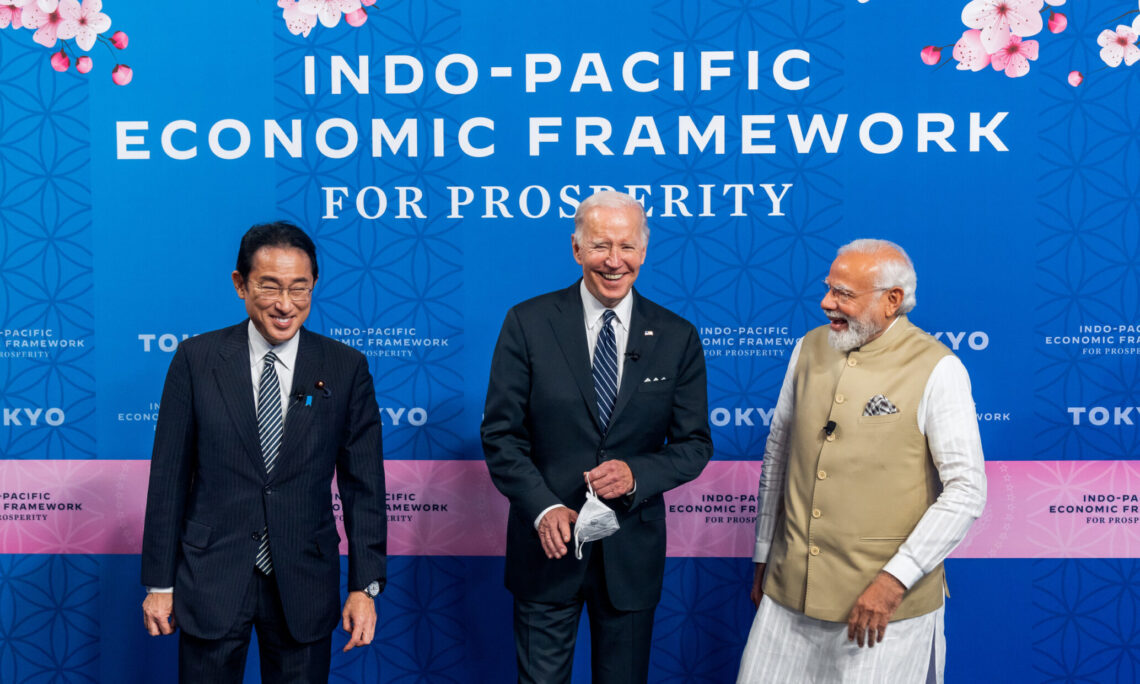Morgan Stanley: 2% Stock Rise In 2024, Emphasizes Defensive And AI Picks
Morgan Stanley’s Mike Wilson predicts a mere 2% S&P 500 rise in 2024, citing concerns over inflation and interest rates. He advocates a stock-picking approach in 2024 given the uncertain macroeconomic environment.
Japanese Yen Nears 33-Year Low Amid Policy Challenges
Japan’s yen hovers close to a 33-year low, triggering concerns about potential intervention. As traders test Tokyo’s resolve, the Asia-Pacific Economic Cooperation summit takes center stage, featuring Chinese President Xi Jinping’s meeting with U.S. President Joe Biden.
Global Funds Anticipate Rebound In Oversold Chinese Stocks
Cambridge Associates, Franklin Templeton, and abrdn predict a potential turnaround in oversold Chinese stocks, citing historically low valuations. The MSCI China Index, down 13% this year, is trading at its lowest since 2018. Fund managers are optimistic about a swift rebound.
Today’s News
The Biden administration has encountered obstacles in its efforts to finalize the Indo-Pacific Economic Framework for Prosperity, a critical trade pact aimed at fortifying alliances in East and South Asia. Plans to announce the conclusion of substantial portions at an international meeting in San Francisco this week have been put on hold due to strong objections from prominent Democrats, including Senator Sherrod Brown of Ohio.
Delay In Trade Portion Announcement
The White House had intended to declare that the U.S. and its trading partners had largely settled the terms of the agreement, a key element of the administration’s strategy to counter China’s influence in Asia. However, criticism from lawmakers, particularly about the pact’s insufficient protections for workers, prompted the administration to delay the announcement.
Strategic Importance Of The Agreement
The Indo-Pacific Economic Framework for Prosperity, encompassing Australia, Indonesia, Japan, South Korea, and Singapore, represents 40% of the global economy. Its four main pillars, including supply chain integration, clean energy, and decarbonization, are crucial to the administration’s broader objectives in the region.

Image Source: U.S. Embassy and Consulates in India
While the Commerce Department is set to conclude two other pillars this week, the trade portion, overseen by U.S. Trade Representative Katherine Tai, remains contentious. The negotiations cover regulatory practices, import-export procedures, agriculture, and standards for protecting workers and the environment.
Congressional Concerns And Criticism
Congressional Democrats, led by Senator Ron Wyden, have expressed concerns over labor and environmental standards. The lack of close consultation with Congress during negotiations and clashes over digital trade further intensified criticism. Senator Brown called for excluding the entire trade pillar from the agreement, citing inadequate protections for workers.
“As the administration works to finalize the Indo-Pacific Economic Framework, they should not include the trade pillar.”
“Any trade deal that does not include enforceable labor standards is unacceptable.” Mr. Brown said.
The Biden administration, keen on having developments to announce, faced the dilemma of appeasing critics and pushing forward. The decision to delay the final trade measures until next year is a setback for the administration’s Asia strategy and underscores the intricate politics surrounding trade agreements, particularly for Democrats who emphasize worker and environmental protections.
Path Forward And Ongoing Negotiations
Despite the setback, the administration remains committed to promoting workers’ rights and raising standards throughout the negotiations. The decision highlights the complexity of negotiating high-standard agreements while navigating domestic political challenges. U.S. trade officials will continue to work with Congress to address concerns and ensure a comprehensive agreement that supports American jobs and garners congressional support.
Katherine Tai reaffirms a commitment to robust labor standards within the agreement, extending protection to countries with lower worker safeguards. Critics argue that the U.S.’s negotiating power is constrained without tariff rate reductions, raising concerns about potential repercussions on American workers. This apprehension is shared by both trade skeptics and the administration, drawing parallels to the failure of the Trans-Pacific Partnership. Senator Wyden underscores the imperative for a well-balanced trade agreement that not only protects American jobs but also garners widespread congressional support. He urges Ambassador Tai to actively engage and collaborate with Congress in achieving this delicate balance.